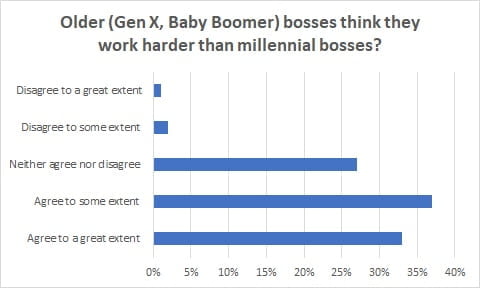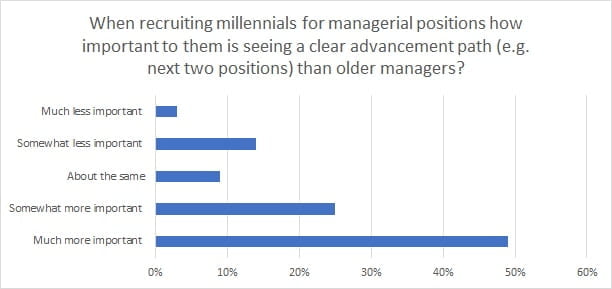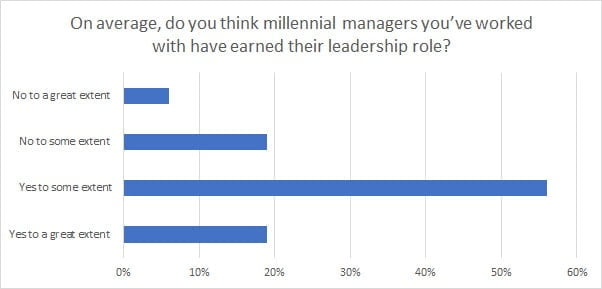Millennials, defined as individuals born between 1981 and 1996, are increasingly moving into management positions. With baby boomers retiring, millennials are fast-tracking into high-level roles far more quickly than expected and their presence in leadership positions is having a powerful impact in the dynamic of organisations. To better understand how millennials are shaping management culture, Korn Ferry conducted a survey with over 1,000 HR professional for their views.
Millennials, defined as individuals born between 1981 and 1996, are increasingly moving into management positions. With baby boomers retiring millennials are fast-tracking into high-level roles far more quickly than expected and their presence in leadership positions has had a powerful impact in the dynamic of organisations. To better understand how millennials are shaping management culture, Korn Ferry conducted a survey with over 1,000 HR professional for their views.
The survey shows that millennials bosses are favouring a different way of communicating with their employees. 55 percent of the respondents said online messaging is the most common way for millennial bosses to communicate with their direct reports, followed by email at 28 percent. Only 14 percent said their favoured way to communicate is in person, and 3 percent said via phone.
The way bosses communicate with their staff has a huge impact on organisational culture. Millennials grew up using screens as their primary form of interaction, and while online messaging and email are efficient tools, face-to-face communication is needed to create an inclusive culture. So, it’s no surprise that when asked what they wish millennial bosses would do more of, the largest percentage of HR professionals (29 percent) said face-to-face communications.
This over reliance in technology could be deterring millennials’ ability to communicate effectively with their bosses. When asked what this generation do best at work, keeping their bosses informed came at the bottom of the list with 10 percent.
Creating flexibility in the workplace came up as what millennial bosses do best at work (65 percent). This presents a great opportunity for companies that are increasing implementing a variety of flexible practices to cater for the needs to a diverse workforce.
Millennial leaders are looking for culture fit. The survey found that when HR is interviewing for management positions, millennial candidates say that making an impact on organisational culture is most important to them, with salary being the least important. A previous Korn Ferry research showed that five years ago, salary and benefits were the top reason a candidate would choose one company over another. But younger generations are driving changes in workers’ priorities. One of the most defining characteristics of millennials at work has been the devaluation of salary as the prime factor in choosing an employer. This means that organisations should be focusing on values, opportunities for growth and development to keep their young leaders engaged.
These young leaders want a job with opportunities to learn and grow. The survey found that compared with Gen Xers and Baby Boomers, knowing what is coming next is critical for millennial bosses. Nearly three quarters (74 percent) said a clear advancement path (e.g. next two positions) is more important for millennial bosses, with 49 percent saying it is much more important.
However, millennial managerial approaches may not be seen as positive by bosses of different generations. Seventy percent of respondents say Gen X and Baby Boomer bosses believe they work harder than their millennial counterparts. The survey did find though that managers believe millennial bosses are qualified. Seventy-five percent of respondents say they believe millennial managers have earned their role.
Members of the millennial generation are really reaching a new level of maturity in the workplace. They may not approach management the same way as bosses from different generations, but instead of fighting change, business leaders seeking the best and brightest from this generation must work closely with millennial managers to provide well laid out career paths and adapt to the dynamic culture millennials bring to the organisation.
Millennials survey results:



















